Power outages and freezers
nancyjane_gardener
5 years ago
Featured Answer
Sort by:Oldest
Comments (35)
writersblock (9b/10a)
5 years agolast modified: 5 years agoplllog
5 years agoRelated Discussions
Maytag gas range will not work in power outages
Comments (38)I don’t think you need to get rid of your Maytag. there are some new portable battery backup solutions available that you probably should invest in anyway (fridge, medical equipment, radio radio/internet access for news) that would be more appropriate than a gas generator. I’m assuming your maytag runs off a regular 110 outlet? walmart has a bunch of these and they’re reasonably priced. plus plus, most red cross and fire stations will recharge for free. I’m looking at one for my pump house to keep our water and electric gate running - they are 220 running intermittently)....See MorePower Outage Losses
Comments (7)Everyone gave great tips, and I agree, the butter and nuts would have been fine, and I would have cooked the thawed fruit, and anything else that was thawed. But anything that still had ice crystals in it, I would have kept or cooked. Did you have a freezer/refrigerator thermometer so you actually KNEW what the freezer temperatures was? And if so, what was that temperature when you decided to toss everything? It obviously wasn't at an unsafe temperature for the entire time the power was out (dense food, like butter, thaws fairly slowly, therefore it helped to maintain a food safe temperature perhaps for as long as 24-hours before going up), and may not have been at an unsafe temperature at all (the Danger Zone is between 40°F-140°F). Even food left on a picnic table has a 2-hour window in the Danger Zone before it needs to be refrigerated or tossed, and 1-hour if the ambient temperature is over 90°F. BTW - Your home owners insurance may cover the food loss, so check your policy or with your agent and make a list. I also would try to figure out why the generator didn't keep the contents of the freezer portion of the refrigerator colder....See MoreFreezer bags or vacuum sealer or what for freezing stuff
Comments (18)I like the Glad zipper bags better than Zip-Locs but my (Glad) stock is several years old so I don't know how the new ones compare to the old. I don't like how Zip-Locs always tear at the seam above the seal. And I love the cool blue color of the Glad freezer bags---which has not one thing to do with performance. The Glad bags are not as widely stocked as Zip-Loc brand so you have to kinda' hunt for them. Forgot to mention that I vac seal only beef and pork. Don't bother with chicken because I have a high turnover with chicken. I buy a lot of those bargain 10# bags of leg quarters because I like dark meat chkn far better than white meat. Separate the leg from the thigh, trim excess skin & fat (which goes into the stock pot or pressure cooker to make broth). I stuff the individual pieces into fold-over top sandwich bags...the bag 'sticks' to the chicken eliminating a lot of the air pockets...then the individual portions are bagged in a gallon size freezer zipper bag. This system works well with chicken breasts, too. I always keep some boneless, skinless breasts for a few recipes where I prefer the white meat and the ease of using boneless pieces....See MoreOT - intentional power outage
Comments (15)So informative, thank you, Jackie! We lose our water in any power outage. The utility delivers it halfway up the hill, and we must pump it the rest of the way. We get a slow trickle of whatever is currently in the tank which allows us to flush once a day for a couple of days. We go to the YMCA for showers and either eat canned food or eat out. A more widespread power outage would make this impossible, but we live on a hill and have unplanned power losses from time to time. We have one of those electric/gas combination ranges. I had been thinking that it would be better to have all-gas, but since the thermostat would be electric, that is probably not an improvement. And oh yes, neither heater or air conditioner. Again, the thermostat doesn't work. I am quite interested in reducing our energy usage and we have had solar panels for about a dozen years now, but even I thought that the no-gas regulation was seriously shortsighted. My husband Tom does have a generator, but it is a pain in the neck to hook up, so we only do it if the power is out for a while. The freezer gets priority. I sometimes lament the loss of a true landline (not the digital kind), but the assaults of telephone spammers have made them unendurable. I have set my cell phone up so that only people I know can reach me. Strangers can leave messages, but my phone won't ring, and spammers almost always hang up without leaving messages. It has returned sanity to my life. Tom is an amateur radio operator (which is why we have the generator) so we could be in contact that way. I have a hand crank radio somewhere, but honestly I don't know where it is. I certainly would require daylight and a calm mood to find it....See MoreOlychick
5 years agobragu_DSM 5
5 years agofoodonastump
5 years agodcarch7 d c f l a s h 7 @ y a h o o . c o m
5 years agosleevendog (5a NY 6aNYC NL CA)
5 years agowritersblock (9b/10a)
5 years agopkramer60
5 years agoCaroline Hamilton
5 years agoAnglophilia
5 years agosleevendog (5a NY 6aNYC NL CA)
5 years agolindac92
5 years agonancyjane_gardener
5 years agoannie1992
5 years agoartemis_ma
5 years agolast modified: 5 years agosleevendog (5a NY 6aNYC NL CA)
5 years agolast modified: 5 years agodcarch7 d c f l a s h 7 @ y a h o o . c o m
5 years agonancyjane_gardener
5 years agoannie1992
5 years agoUser
5 years agolast modified: 5 years agoM
5 years agodcarch7 d c f l a s h 7 @ y a h o o . c o m
5 years agolast modified: 5 years agodcarch7 d c f l a s h 7 @ y a h o o . c o m
5 years agoM
5 years agodcarch7 d c f l a s h 7 @ y a h o o . c o m
5 years agolast modified: 5 years agoM
5 years agodcarch7 d c f l a s h 7 @ y a h o o . c o m
5 years agolast modified: 5 years agospartanapples
5 years agoannie1992
5 years agodadoes
5 years agonancyjane_gardener
5 years agoJohn D Zn6a PIT Pa
5 years agoannie1992
5 years ago
Related Stories
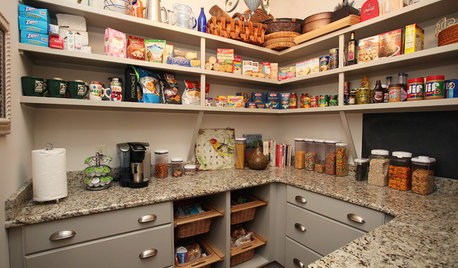
LIFEHow to Prepare for and Live With a Power Outage
When electricity loss puts food, water and heat in jeopardy, don't be in the dark about how to stay as safe and comfortable as possible
Full Story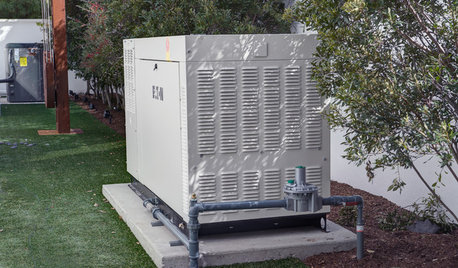
DISASTER PREP & RECOVERYMore Power to You: How to Pick the Right Generator
If your home's electricity goes, don't let it take your necessities with it — keep systems running with this guide to backup power
Full Story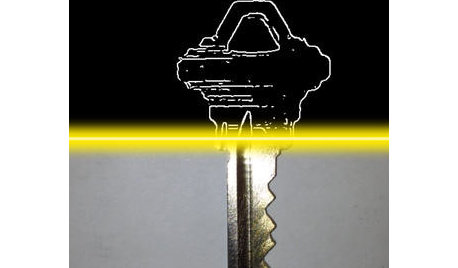
HOME TECHUnlock Your Smart Phone's Front-Door Powers
Take your locks and keys into the digital age with 3 solutions that put convenience and new capabilities on your doorstep
Full Story
MOST POPULARA Few Words on the Power of Simplicity
An architect considers a pared-down approach to modern home design
Full Story
GREEN BUILDINGOff the Grid: Ready to Pull the Plug on City Power?
What to consider if you want to stop relying on public utilities — or just have a more energy-efficient home
Full Story
GREEN BUILDINGSunlight Used Right: Modern Home Designs That Harness Solar Power
Embracing passive heating principles through their architecture, siting and more, these homes save energy without skimping on warmth
Full Story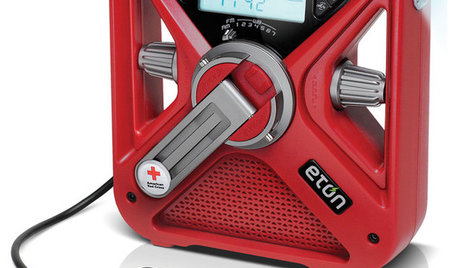
HOME TECH7 Ways to Charge Up and Connect After Disaster
Products and tips for communicating and keeping essential items running till the power's back on
Full Story
ACCESSORIESEasy Green: Cut Electricity Use With 15 Unplugged Home Devices
Crank up the energy savings, courtesy of household items that come into power the old-fashioned way: manually
Full Story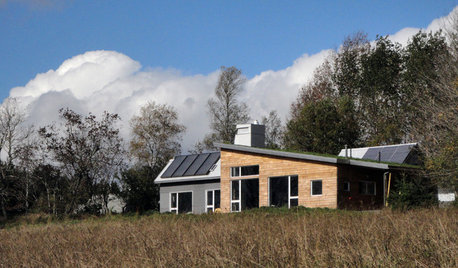
GREEN BUILDINGHouzz Tour: Going Completely Off the Grid in Nova Scotia
Powered by sunshine and built with salvaged materials, this Canadian home is an experiment for green building practices
Full Story
HOME TECHSmall Solar: Big Home Tech Trend in the Making
New technology enables everyday household objects to power themselves by harnessing natural light
Full Story


User